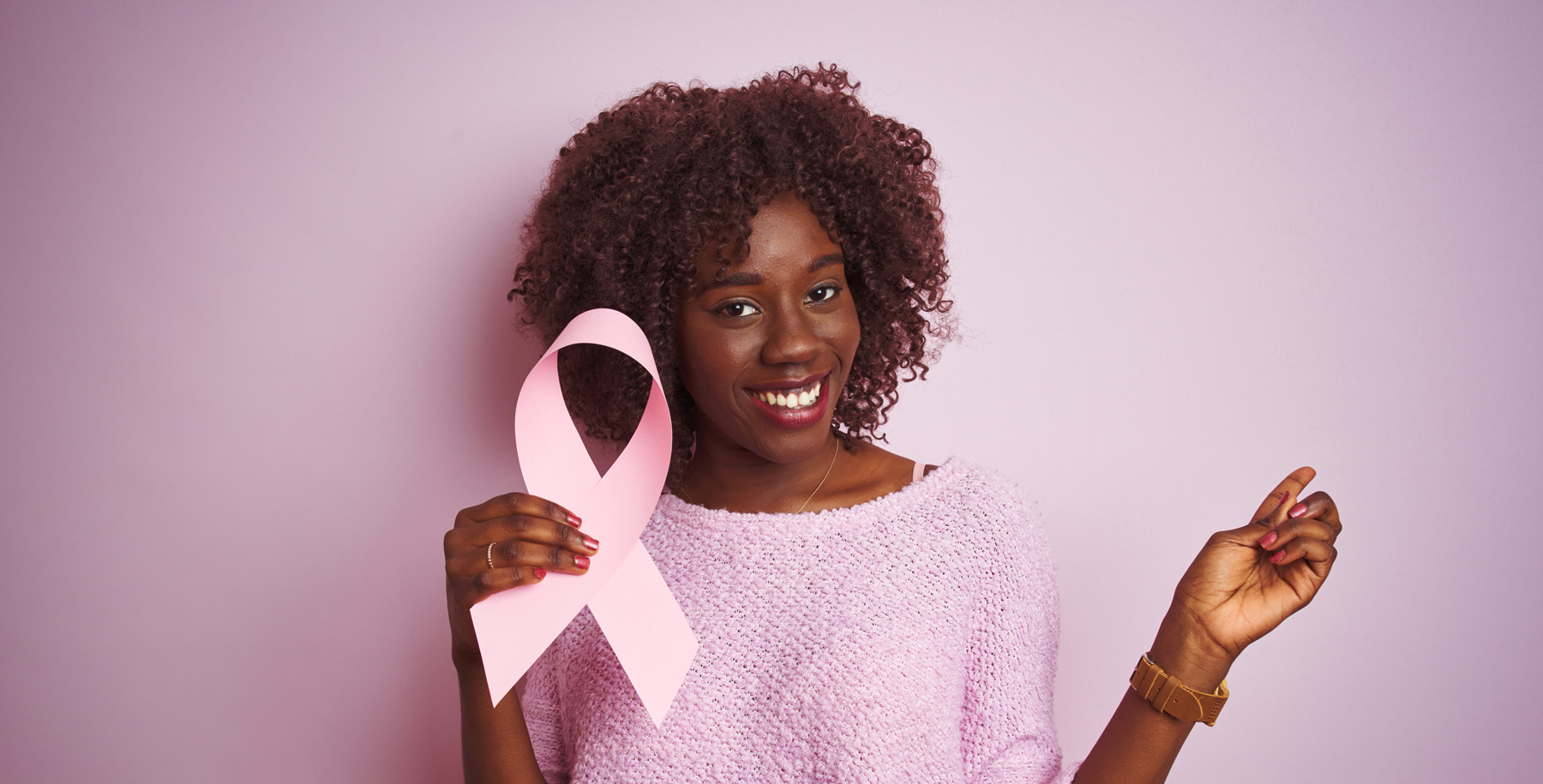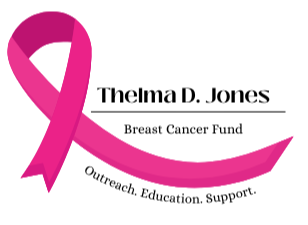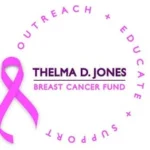Programs and Services
The TDJBCF offers programs to address a need in the community and for which there is a demonstrated demand that will complement rather than duplicate the existing work of other organizations. This involves collaborations with other individuals and organizations on a year-round basis. In addition, we offer services that meet vital community needs that will have a broad impact by especially benefitting the historically less-served communities. The overall goal of our programs and services remain to empower residents to live healthier, take charge of their lives and reduce the burden of breast cancer in our communities for women, men and young girls.
The primary activities of the TDJBCF are carried out in the Washington, DC Metropolitan Area, which includes Northern Virginia, Prince George’s County and Montgomery County. We are frequently called upon, however, to address communities and to provide services at other locations throughout the United States, including the founder’s home state of North Carolina. The TDJBCF regularly educates the public on breast health by participating in and hosting a variety of outreach events and activities.
We believe that meeting the community in need in their comfort zone often produces greater results as opposed to requiring residents to visit a formal site that could be a barrier to care, such as transportation costs. Through collaborative efforts, the TDJBCF leverages its longtime involvement in the community, making it regularly sought after for its outreach abilities, a true hallmark of the TDJBCF and its founder.
The TDJBCF programs are designed to reach the broadest audience in the Washington, DC, metro area, including those who welcome learning about prevention strategies and those who are diagnosed with breast cancer at all stages, years into survivorship, as well as their supporters who include the medical community, community-based organizations, faith-based institutions, nonprofits, public and private sector organizations, patient navigators, and caretakers, among others.
For more details about the programs and services offered by the TDJBCF, please see below.
Signature Program – Thelma D. Jones Breast Cancer Fund Support Group (TDJBCF Support Group)
Established in April 2010 on a support group model at the World Bank Group, the Thelma D. Jones Brest Cancer Support Group is the signature program of the Thelma D. Jones Breast Cancer Fund, providing a warm, welcoming, safe and secure environment for participants to discuss their diagnosis and concerns while receiving hope, inspiration and courage during their journey. As someone who has traveled the journey with an extensive support system, Founder Thelma D. Jones strongly believes that no one should travel their cancer journey alone. The highly-acclaimed and three-times nationally recognized support group meets regularly at 6:30 p.m. on the third Wednesday of each month in Southwest DC, unless otherwise specified. Approximately 1000 women, men and young girls have attended the meetings since its inception. Most participants are breast cancer survivors who attend on a regular basis and periodically invite other survivors who become regular members as well.

Evelyn B. Curtis Spirit Award
There are many heroes and heroines in the field of health care who quietly go about their work without much public recognition. They include practitioners, philanthropists, board members, staff teams, nurses, interns, community leaders, faith-based leaders, and leadership staff, among others. The Thelma D. Jones Breast Cancer Fund is granting this award and $200 to a person who truly embodies the spirit of Evelyn B. Curtis.
Since 1982, Thelma D. Jones has maintained a close relationship with her Southwest community as well as citywide, where she serves on several nonprofit boards, enabling her to have regular and direct involvement with the people she serves in a grassroots capacity. This regular contact has enabled the Founder to leverage her community engagement that has helped to gain and maintain trust which is vital to overcoming some of the barriers surrounding prevention and survivorship of breast cancer. Some of the TDJBCF’s involvement includes:
- Breast Cancer Walks: Encourages physical activity, among other things, by organizing teams for groups that want to participate in various walks, including the American Cancer Society Making Strides Against Breast Cancer, ACS Relay for Life, Komen for the Cure, Parkrun, and local community walks, among others.
- “Upcoming Events” E-blasts: Serves as a clearinghouse of information by issuing regular “Upcoming Events” e-blasts to more than 1,200 people, providing information on activities and events related to breast cancer, cancer in general, other chronic diseases, and overall healthy living. Recipients of the e-blasts share the information within their organizations, including faith-based newsletters, bulletin board postings, websites, and discussions during staff meetings. It is estimated that the well appreciated “Upcoming Events” information reaches more than 4,000 readers on a regular basis through this sharing.
- Other Event Engagements: Supports numerous organizations in their fundraising efforts benefiting breast cancer, other types of cancers, as well as other chronic diseases by recommending speakers, donating to the cause, recruiting volunteers to assist at their events, and providing exposure to the organization’s efforts through the TDJBCF “Upcoming Events” listing.
Outreach, Education, Nonclinical Navigation Services and Survivorship Support
- Provide trained breast health speakers for events and media opportunities in and around the Washington, DC area.
- Conduct breast health classes in a variety of venues with a focus on the historically underserved communities, such as public housing. Southwest DC has the largest concentration of public housing in the city.
- Organize panel discussions on breast health, including identifying and recruiting panelists.
- Host breast health presentations at workshops, conferences and seminars, including table presentations at health fairs, hospitals, schools, recreation centers, libraries, faith-based institutions, nonprofit organizations, public sector organizations, public housing events and malls.
- Conduct special outreach for male breast cancer survivors and men’s health, including dedicating an entire support group meeting each February for this specific purpose.
- Conduct outreach in Southwest DC for young girls and women in public housing through street organizing efforts at feeding programs and neighborhood outings, including giving mini talks and discussions or doing one-on-one conversations on prevention, education, complementary therapies, diagnosis, treatment and survivorship. Also serves as a regular speaker and table presenter during the annual Mayor Youth Leadership Health and Fitness Expo and the popular Summer in Lansburgh in Southwest DC which attracts over 1000 participants annually.
- Arrange screening appointments, accompany patients to appointments, help patients to apply and receive medical coverage, counsel patients experiencing fear and emotional challenges and refer to appropriate social service organizations, when necessary.
- Identify and make referrals for breast cancer survivors for various social service programs, including domestic violence, shelter programs and food service programs.
- Provide emotional support, hospital and home visits to breast cancer survivors, including speaking at memorial services and funerals and providing follow-up support to the extent possible.
Community Breast Screenings
- Organize visits of the George Washington Mammography Mobile Unit to the local Southwest DC Safeway for screening women who have been identified and recruited, primarily from Southwest’s public housing, and provide one-on-one breast health information after screening appointment.
- Organizes screening appointments to the Capital Breast Care Center, Georgetown Lombardi Comprehensive Cancer Center, Georgetown University.
Financial Assistance
Provide limited financial assistance to breast cancer survivors for utility bills, family bereavement and transportation costs for medical appointments.
Community Connections
- Serve as coordinating nexus in identifying and connecting breast cancer survivors with the medical community for specific focus groups, dialogues, conversations, media interviews, photo and video shootings, other navigation services, and a variety of social settings.
- Provide letters of support for grant application, and other related requests, e.g., Department of Health application to the CDC.
- Identify, recruit and recommend breast cancer survivors to serve on committees for cancer research efforts.
- Identify, recruit and recommend breast cancer survivors for potential career opportunities and volunteer/community engagement opportunities.
- Provide advice on establishing support groups and speak at and attend other support group meetings.
- Provide an array of referrals to other types of survivors (non-breast cancer), caretakers and organizations that are seeking specific social services assistance.
- Identify and refer speakers for healthy living and cancer-related events, including media interviews and photo shoots.




